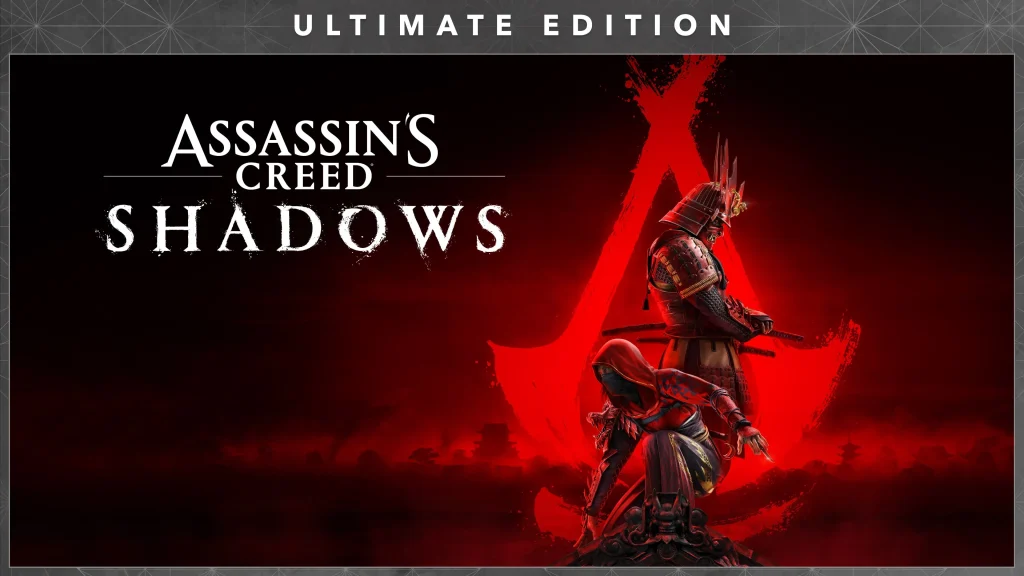In the tumultuous world of video games, *Assassin’s Creed Shadows* stands out not just for its gameplay but for the unique challenges faced by its creators, particularly Sachi Schmidt-Hori. When tasked with ensuring historical accuracy in a game rife with cultural complexities, Schmidt-Hori encountered significant backlash that intertwined issues of representation and authenticity. The Ubisoft controversy surrounding Shadows has ignited a broader conversation about DEI representation in gaming, especially as it pertains to character choices and historical narratives. Amidst discussions of video game backlash, Schmidt-Hori’s story highlights the struggles of addressing cultural sensitivities without falling victim to criticism. As the game’s dual protagonists—a female shinobi and a Black samurai—take center stage, Shadows reflects a pivotal moment in redefining how video games approach history and inclusion.
The gaming landscape has witnessed notable projects like *Assassin’s Creed Shadows*, where the intersection of cultural representation and historical fidelity creates a vibrant yet contentious atmosphere. This title’s development journey, especially through the lens of researcher Sachi Schmidt-Hori, reveals the complexities that come with aiming for authenticity in historical narratives. Gamers and critics alike have taken a keen interest in the backlash surrounding Ubisoft’s initiatives, particularly regarding how DEI representation influences character design and storytelling. The critical dialogue emerging from Shadows not only aligns with ongoing discussions about video game backlash but also emphasizes the necessity for sensitivity and awareness in gaming history. As players navigate the richly woven tales of this franchise, the intricate balance between entertainment and accurate representation remains a hot topic for both developers and their audiences.
The Rise of Assassin’s Creed Shadows Amid Video Game Backlash
Assassin’s Creed Shadows has ignited significant conversation within the gaming community, particularly in light of the recent backlash against video games that engage with sensitive cultural subjects. This reaction is not unprecedented, as various titles have faced similar criticism over perceived historical inaccuracies and representation issues. Notably, Shadows has found itself at the center of discussions regarding racial and cultural portrayals, successfully stirring debates about historical authenticity versus creative liberty. The backlash isn’t merely noise; it reflects broader societal tensions regarding representation and the importance of diversity, equity, and inclusion (DEI) in gaming.
The involvement of Sachi Schmidt-Hori, an academic specializing in Japanese culture, in the development of Assassin’s Creed Shadows highlights the significance of employing experts in historical and cultural contexts. Schmidt-Hori’s nuanced understanding allowed the Ubisoft team to address concerns around historical accuracy, which is crucial when dealing with a franchise known for its elaborate storytelling tied to real-world events. However, the backlash serves as a reminder that even well-researched portrayals can provoke discontent, leading to ongoing discussions about the responsibilities of game developers in handling cultural narratives.
Frequently Asked Questions
What is the significance of Sachi Schmidt-Hori in Assassin’s Creed Shadows?
Sachi Schmidt-Hori is an Associate Professor of Japanese Literature and Culture who was recruited by Ubisoft to ensure historical accuracy in Assassin’s Creed Shadows. Her expertise helped shape the game’s narrative and cultural representation, particularly concerning its Japanese setting.
How did Ubisoft’s approach to DEI representation impact Assassin’s Creed Shadows?
Ubisoft’s commitment to Diversity, Equity, and Inclusion (DEI) in Assassin’s Creed Shadows was evident in the choice of diverse protagonists, such as female shinobi Naoe and the samurai Yasuke, a Black character. However, this decision also drew backlash from various groups and highlighted the challenges of representation in video games.
What controversies surrounded Assassin’s Creed Shadows during its development?
Assassin’s Creed Shadows faced significant backlash regarding its historical representation and character choices. Critics argued over historical inaccuracies and the portrayal of cultural elements, which were exacerbated by the game’s diverse character lineup and the involvement of scholars like Sachi Schmidt-Hori.
What criticisms has Sachi Schmidt-Hori faced regarding her work on Assassin’s Creed Shadows?
Sachi Schmidt-Hori faced personal attacks and online harassment due to her involvement in Assassin’s Creed Shadows. Critics accused her of being a ‘sellout’ and contributing to cultural erasure, particularly citing her identity and academic work as points of contention.
In what ways did Assassin’s Creed Shadows strive for historical accuracy?
Assassin’s Creed Shadows aimed for historical accuracy by involving experts like Sachi Schmidt-Hori, who verified the authenticity of cultural elements, architectural details, and character backgrounds in the game. This research was crucial in addressing the game’s setting during the 16th century.
How has Ubisoft responded to the backlash against Assassin’s Creed Shadows?
Ubisoft’s response to the backlash included publicly expressing support for their development team while emphasizing their commitment to creating an inclusive gaming environment. However, many team members, including Schmidt-Hori, felt unsupported regarding personal safety and faced significant online harassment.
What are some key themes explored in Assassin’s Creed Shadows?
Assassin’s Creed Shadows explores themes of identity, cultural representation, and the complexities of historical narrative through its characters. The game examines the interplay between diverse backgrounds and historical events, reflecting contemporary discussions about race and representation.
What role does Sachi Schmidt-Hori play in addressing historical misconceptions in Assassin’s Creed Shadows?
Sachi Schmidt-Hori’s role involved analyzing scripts and consulting on historical elements to prevent misconceptions, ensuring the narrative maintained a level of authenticity while engaging players in the game’s fantasy setting.
What reactions did the public have to the protagonist choices in Assassin’s Creed Shadows?
The choice of a female shinobi and a Black samurai as protagonists in Assassin’s Creed Shadows sparked polarized reactions, with some praising the representation while others criticized it for perceived historical inaccuracies and identity politics.
How did the online community react to Assassin’s Creed Shadows upon its reveal?
Upon the reveal of Assassin’s Creed Shadows, the online community erupted in controversy, with discussions ranging from historical misrepresentation to criticism of the game’s focus on diversity. This led to significant harassment directed at Sachi Schmidt-Hori and other team members.
| Key Points | Details |
|---|---|
| Background of Sachi Schmidt-Hori | Ivy League professor invited to work on Assassin’s Creed Shadows after initial deletions of emails, leading to her engagement with Ubisoft. |
| Research Role | Contributed research on historical accuracy and cultural representations in the game, focusing on complex topics not easily found on Google. |
| Public Backlash | Following the game’s reveal, Schmidt-Hori faced extensive online abuse due to her identity and involvement in the game, reflecting wider cultural wars. |
| Engagement with Critics | Tried to understand and communicate with some individuals who criticized her work online, leading to dialogues and resolutions. |
| Ubisoft’s Response | Company offered limited support during backlash, suggesting she ignore the harassment, which led Schmidt-Hori to choose not to renew her contract. |
Summary
Assassin’s Creed Shadows has become emblematic not just of a video game, but of the cultural conflicts and discussions surrounding representation, identity, and inclusion in modern media. This development exemplifies how narratives in gaming can swiftly intersect with societal debates, challenging creators to navigate complex themes while facing backlash. Sachi Schmidt-Hori’s experience sheds light on the resilience of individuals participating in these discussions and the importance of dialogue in countering toxic reactions.



